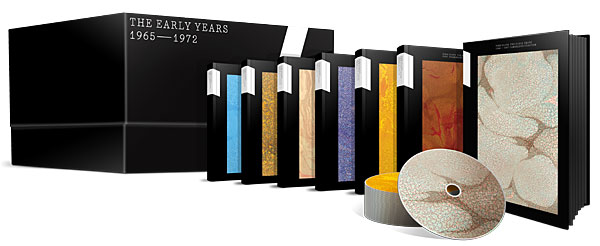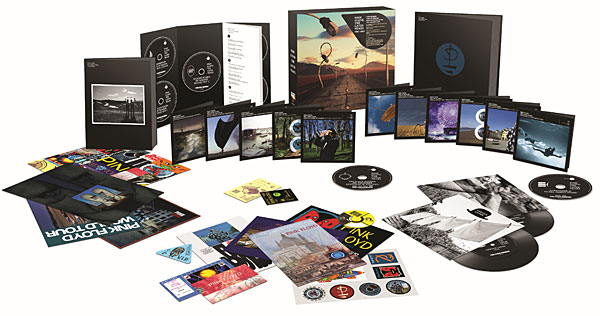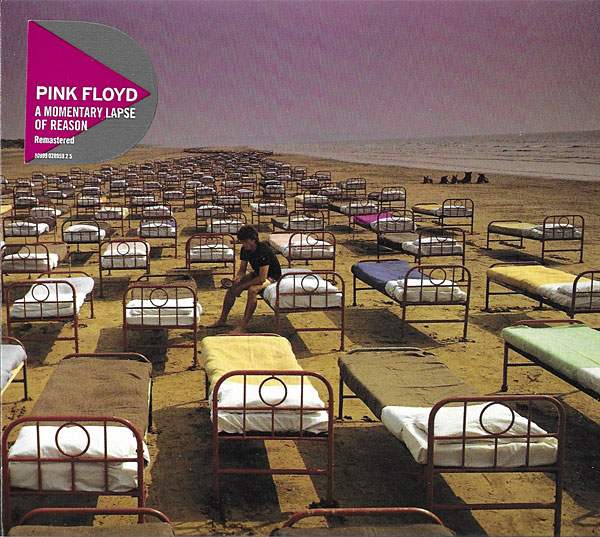Nick Mason Spills a Saucerful of Secrets Page 3
Mason: (emphatically) No! Roger and David didn't have to sign off. I would have had to sign them off!
No, they were both great, actually, and very supportive. Roger came and played at the Beacon Theatre [in New York City on April 18, 2019, where he sang lead vocals on "Set the Controls for the Heart of the Sun"—and hit the gong on it too!], which was really terrific; great fun. They were great. To some extent, everyone is allowed to get on and do what they want.
Mettler: Well, that's good to hear. Obviously, the Syd Barrett influence looms large over the Saucerful set's material. I like what [guitarist/vocalist] Gary Kemp said in one of the supplemental interviews, something to the effect that when he plays Syd's songs, he's trying to channel that "Londoner, Ziggy Stardust, and Johnny Rotten" vibe there. Does that sound about right to you?
Mason: Yeah! Gary has been an absolute triumph. He just brought something to the party that was unexpected, I think. Unexpected—but when you think about it, it becomes more obvious, because that whole New Romantics thing was actually very close to what Syd was, in certain ways.
[MM notes: Gary Kemp is perhaps best known for being the lead guitarist and chief songwriter for the 1980s British New Romantics-era band, Spandau Ballet ("True," "Gold").]
Mettler: Were there ever any arguments between who was going to sing what song? Did Guy [Pratt] and Gary [Kemp] duke it out?
Mason: No. As of yet, no lawyers have been instructed with this band.
Mettler: Fair enough.
Mason: And the fact that David Bowie was a big Syd fan [among other things, Bowie covered "See Emily Play" on October 1973's Pin Ups, and sang "Arnold Layne" with David Gilmour at the Royal Albert Hall in May 2006] is also indicative of what was going on, which Gary brought to the party. It's a great band, in terms of where they've come from, and what they've done. Any musical experience can be put to some use in another musical experience. It's one of the things I feel quite strongly about.
Mettler: Do you feel people understand Syd's legacy a bit differently now? He's always had that "myth vs. man" thing where he's been put on this pedestal—but you're one of the few people who can say they knew him personally. Do you feel you're doing him justice as an artist?
Mason: Yeah, definitely. Frankly, I think any opportunity to bring out any artist's work is doing them justice. Put it like this—anything is better than nothing. And that's true of most composers. All anyone would want is at least to get a hearing, even if it's not very well done. Better that, than nothing.

Mettler: Right. Well, I think "Vegetable Man" is a very interesting choice, one that people may not have expected to get from this collective. ["Vegetable Man," a 2:32 track originally recorded by Pink Floyd in October 1967, was well-bootlegged for decades before being officially released on the band's November 2016 The Early Years – 1965-1972 box set.]
Mason: That's quite a good example of something—with "Vegetable Man," we think it works in the way that we do it. We could have done it a different way—we could have extended it by dividing up the verses and putting in a solo that never existed. Maybe it's something we might do in the future, but at the moment, it seems to work as a short piece.
Mettler: It's nice and economical, and having "Bike" [the last track on Piper] towards the end of the set is a good choice as well.
Mason: Yes, and putting the [setlist] order together is quite fun. We moved things around a little bit, and obviously, when we extended the repertoire, we moved them around again. But the basis of it seemed to work quite well.
Mettler: I'm guessing you won't be throwing in "Have You Got It Yet?" at any point down the line, will you?
Mason: (chuckles) No!
Mettler: That was never officially recorded, right? Just "practiced"?
Mason: No, it never was [recorded]—but maybe we should record it, and let the audience chime in on the chorus. (chuckles heartily)
[MM notes: "Have You Got It Yet?" is an unfinished Syd Barrett song that was attempted and never finished by Pink Floyd during their final practice session together with him, during the time in early 1968 when David Gilmour had just joined the band to make it a five-piece prior to Barrett's departure, which then returned them to being a quartet.]
Mettler: That would be perfect! There's your Easter egg for the next time around.
Mason: (chuckles again) I've got that in mind.
Mettler: We've got 21 songs in this collection, so I'm wondering if you have other selections up your sleeve for when you're actually allowed to play live again.
Mason: Yeah, absolutely, and what we need to do before we go out again is to have some rehearsal time to find out what else we can play—and what else sounds right.
Mettler: I want to say my favorite moment for you in the whole live set is in "Set the Controls for the Heart of the Sun" [from June 1968's A Saucerful of Secrets], where you've got all that toms work going, and you even get the gong involved. That seems to be your showcase for the whole set.
Mason: Yeah, I love that song anyway, and it's always been a joy to play on drums. It's an opportunity, because it's so open to be played with different dynamics every night, if you wanted to. But I have to tell you, the big thing was finally getting my hands on the gong after 40-odd years, or whatever.
Mettler: Yeah, it took you a while to get to it! To some degree, it reminds me of what you do in [September 1972's Pink Floyd concert film] Live at Pompeii. A lot of people say to me that you're the secret ingredient to that performance.
Mason: (chuckles heartily) Well, there is also the belief that Adrian [Maben, Pompeii's director] lost some cans of film for "One of These Days" [originally on the aforementioned Meddle]. I'm not sure if it's true or not, but somebody came up with a fantastic drum feature during "One of These Days"—and I've got a fantastic moustache.
Mettler: That's right, people do love that moustache you're sporting on that one. You may have to bring it back for the next go-round, when you get back on tour.
Mason: No, it's a bit gray now.

Mettler: Well, there are adjustments you can make for that. One thing we never got to talk about is that in The Later Years – 1987-2019 box set, I think it's great that you got to recut your parts for [September 1987's] A Momentary Lapse of Reason—that you were able to go in and give it another go. You must have been quite satisfied doing that.
Mason: Yeah, and that was really Dave's [i.e., Gilmour's] idea, and I have to give him great credit for doing that. We just put so much stuff on that album, and it was partially because of the situation with Roger [Waters, who had left the band a good bit of time prior to Lapse getting underway]—we sort of over-egged the pudding. To be able to pull it back a bit, and see the clearing, was a good thing to do.

Mettler: Is there a favorite performance of yours on that album, any song that stands out to you? I like "On the Turning Away" and "The Dogs of War," both of which are fantastic to hear in the surround mix [done by Andy Jackson and David Gilmour] on the Lapse Blu-ray.
Mason: The song I always like on that album is "Learning to Fly." There's that whole sound-effects sequence with me doing some actual flight training, learning to fly a twin-engine airplane. We just recorded all the radio chatter for it. And I like the drum part in that as well.
Mettler: It has a nice parallel to "Point Me at the Sky," in a way.
Mason: Yes, it's very aeronautical. [Point Me at the Sky" is a Pink Floyd single from December 1968 that's also performed live as the final encore on the Roundhouse release.]
Mettler: "And if you survive till 2005"—well, you might have to change that "Sky" lyric at some point, since we're all still around.
Mason: (laughs heartily) Yes!
Mettler: Ok, one last thing. Since we got both Early Years and Later Years Pink Floyd box sets, will we someday get a The Middle Years – 1973-1986 box so you can fill in the remaining blanks, and can we also get [March 1983's] The Final Cut with a 5.1 mix in there too?
Mason: Well, I'll put that in mind. I think Final Cut hasn't had much done to it over the years. I'll put your request into headquarters.

























































